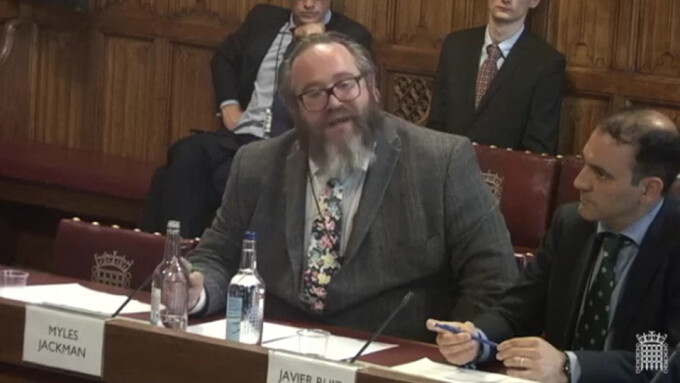LONDON — The Open Rights Group’s legal and policy directors faced queries today from the House of Lords on whether the U.K. government should create a new regulatory framework for the internet within its borders.
Myles Jackman, the Open Rights Group’s legal director, and Javier Ruiz Diaz, the group’s policy director, were invited to discuss with the House of Lords’ Committee on Communications their expert opinions on the matter, particularly with regards to privacy issues. Open Rights Group is a London-based digital rights advocacy group.
The scope of the House of Lords inquiry zeroed in on whether online platforms, including behemoths like Facebook and Google, which mediate individuals’ use of the internet have sufficient accountability and transparency, adequate governance and provide effective behavioral standards for users.
Specifically, the House of Lords was seeking information whether new regulatory framework for the internet is necessary or whether the general law of the U.K. is adequate.
Jackman, who also is an industry attorney based in London, told U.K. lawmakers that he was concerned with two things with any regulatory change: Freedom of expression and the necessity of new legislation.
Jackman said he has “serious concerns” over regulatory gaps concerning potentially lost, breached or hacked data that could put people’s lives at stake.
He specifically noted as an example the impending age-verification regulations imposed on adult entertainment websites, where the BBFC will act as gatekeeper and regulate content.
“We see a gap between the BBFC’s remit to oversee age verification and the Information Commissioner’s Office’s ability to rectify problems with regards to mistakes or data loss and leaks,” Jackman said. “25 million adults are likely to sign up the first month AV will be imposed.”
Jackman went on to say that if any of the AV user data were to be exposed, there could be suicides or people who will be ostracized by their communities.
“This is what happened when AshleyMadison.com was hacked,” he said. “We could be in a dangerous situation if there are data leaks.”
Jackman also focused on the necessity of a new regulatory framework.
“Any form of regulation should be necessary and proportionate to the stated aims and perceived harms,” said Jackman, recalling the former ATVOD regime, which regulated adult content, as “abusive.”
“With ATVOD, 80 to 90 adult websites shut down,” Jackman said. “These were ordinary people running businesses to support their livelihoods."
Jackman and Diaz presented testimony today, as well as with separate testimony from Dr. Damian Tambini, a professor at the London School of Economics, and Mark Bunting, a partner at Communications Chambers.
In launching the inquiry, the committee noted that the government’s Digital Charter seeks to make the U.K. the safest place to be online and that the country should lead the world in innovation-friendly regulation.
“The government’s stated aim is to increase public confidence and trust in new technologies and create the foundations for the U.K. digital economy to thrive,” according to the House of Lords’ Committee on Communications.
Check out a video of today’s testimony here.







